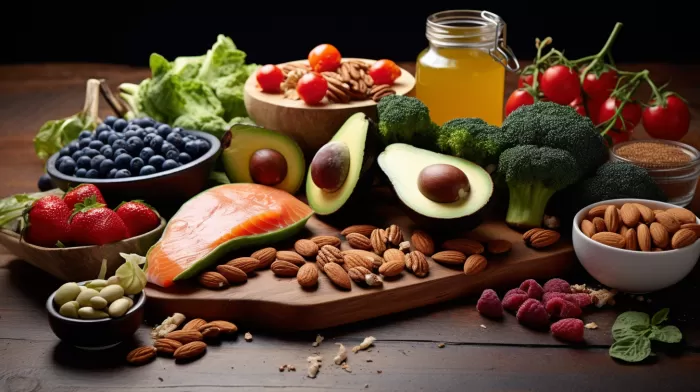Has a case of the blues got you feeling down? Before reaching for those comfort foods you believe will help lift your spirits, it’s important to consider that not all foods were created equal. The key to unlocking happiness and maintaining mental health just might lie in your kitchen.
The connection between diet and mental well-being is actually backed by solid research. According to the team at the University of Eastern Finland, consuming the right foods can greatly boost your mood and even help ward off depression. So, let’s get started on our journey to mental and emotional stability through the magic of food.
Feast on fruits and vegetables
The old adage “an apple a day keeps the doctor away” holds true but now we can add “keeps the blues at bay.” Fruits and vegetables are packed with nutrients and antioxidants, both of which are known to improve mental well-being. In addition, these natural mood enhancers also contain fiber and other vital nutrients needed to maintain a healthy gut, which is crucial since more than 90% of our serotonin (the feel-good neurotransmitter) is produced in the gut.
Moreover, fruits and vegetables are rich in folate, an essential B vitamin that plays a significant role in mood regulation. According to clinical nutritionist Anu Ruusunen, a diet rich in folate not only helps fight off depression but also prevents its occurrence.
Whole-grains, fish, and poultry: triple threat against depression
As the saying goes, variety is the spice of life. A balanced diet containing whole-grains, fish, and poultry is an excellent way to prevent depression. Whole-grains are rich in carbohydrates, which increase serotonin levels, and in B vitamins, which have a significant impact on mental health.
Fish, on the other hand, contains high amounts of omega-3 fatty acids. Not only are these essential fats necessary for overall well-being, but they also help improve mood and reduce symptoms of depression. Cold-water fish, such as salmon, mackerel, and sardines, have the highest concentrations of these healthy fats.
Poultry, especially lean meats like chicken and turkey, are rich in the amino acid tryptophan. Tryptophan helps produce serotonin and melatonin, which together promote relaxation and a sense of well-being.
Low-fat cheese: say “cheese” and smile
Who doesn’t love a good cheese? Replacing high-fat cheeses with their low-fat counterparts not only keeps your waistline in check but also keeps you smiling. Low-fat cheese is an excellent source of vitamin D, which has been linked to mental health and depression prevention. Furthermore, the calcium in low-fat cheese may help manage stress and anxiety while promoting better sleep.
Perk up with coffee
Good news for all you coffee addicts out there! Moderate coffee consumption has been linked to a reduced risk of depression. According to the same study conducted by the University of Eastern Finland, increased coffee consumption is associated with a decreased risk of depression. So don’t feel guilty about enjoying your daily dose of java – it may actually be doing you more good than harm (but remember, moderation is key!).
Foods to avoid
Now that you know what to eat, it’s also essential to understand which foods you should avoid or limit. Some common culprits include processed foods, sugary snacks, and high-fat dairy products, as these can lead to inflammation and exacerbate depressive symptoms. It’s also a good idea to limit alcohol intake, as it can have adverse effects on mental health and overall well-being.
Remember, a healthy diet is only one aspect of maintaining good mental health. Don’t forget to exercise, get enough sleep, manage stress, and seek help if necessary. Taking care of both your physical and mental health can do wonders in boosting your mood and overall well-being.



